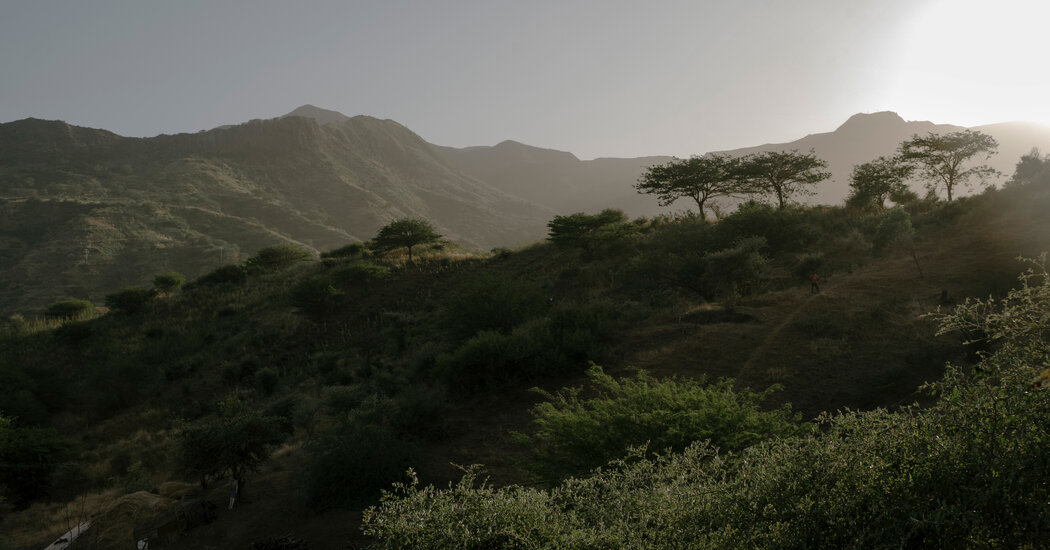Charles Darwin was 22 years old when he first peeled a banana. “Maukish & sweet with little flavor,” he noted in his journal from Santiago, the main island in the Cape Verde archipelago off the coast of West Africa. He preferred oranges and tamarinds, feasting at every opportunity on tropical fruit after three awful weeks at sea.
Darwin was so seasick at the start of his five-year voyage aboard the HMS Beagle that the captain expected him to jump ship back to England as soon as they touched land. But he found his feet on the island he called St. Jago, where he spent his first hours strolling through coconut groves and “hearing the notes of unknown birds, & seeing new insects fluttering about still newer flowers.”
Most travelers questing after Darwin head to the Galápagos Islands, where an entire tourist industry has developed around his legacy. It was the Galápagos where Darwin, according to popular legend, “discovered” natural selection — though, in reality, it was only later in London that he grasped the significance of the finches and other animals he collected there. Still, by the time Darwin reached the Galápagos in 1835, he was a seasoned naturalist who had spent nearly four years on the Beagle.
The Darwin who arrived on Santiago on Jan. 16, 1832, was naïve and untested, with only European soil beneath his fingernails. Cape Verde, then a Portuguese colony, gave Darwin his first taste of his own scientific talent. “He caught a glimpse of his own powers and recognized a new kind of desire — the wish to make a contribution to the world of philosophical natural history,” wrote Janet Browne, his biographer.
An island’s inspiration
Today, Cape Verde is an independent nation of 10 islands and nearly 600,000 citizens speaking Creole and Portuguese. Tourists from Europe usually head to Sal and Boa Vista, where resorts partition white-sand beaches; adventurous visitors climb the active volcano on Fogo or celebrate Carnival on São Vicente.
More Cape Verdeans live on Santiago, though, than any other island. The architecture, music and cuisine blend West African and Portuguese influences: In the capital, Praia, you can snack on papaya from the market or pastel de nata, a Portuguese custard pastry, from a bakery.
Santiago stood out to me ever since I read Darwin’s life story. I wanted to see the island that inspired him to become the scientist we celebrate today. So, last March I checked into the Boutique Hotel Praia Maria, a simple hotel…
Click Here to Read the Full Original Article at NYT > Travel…
